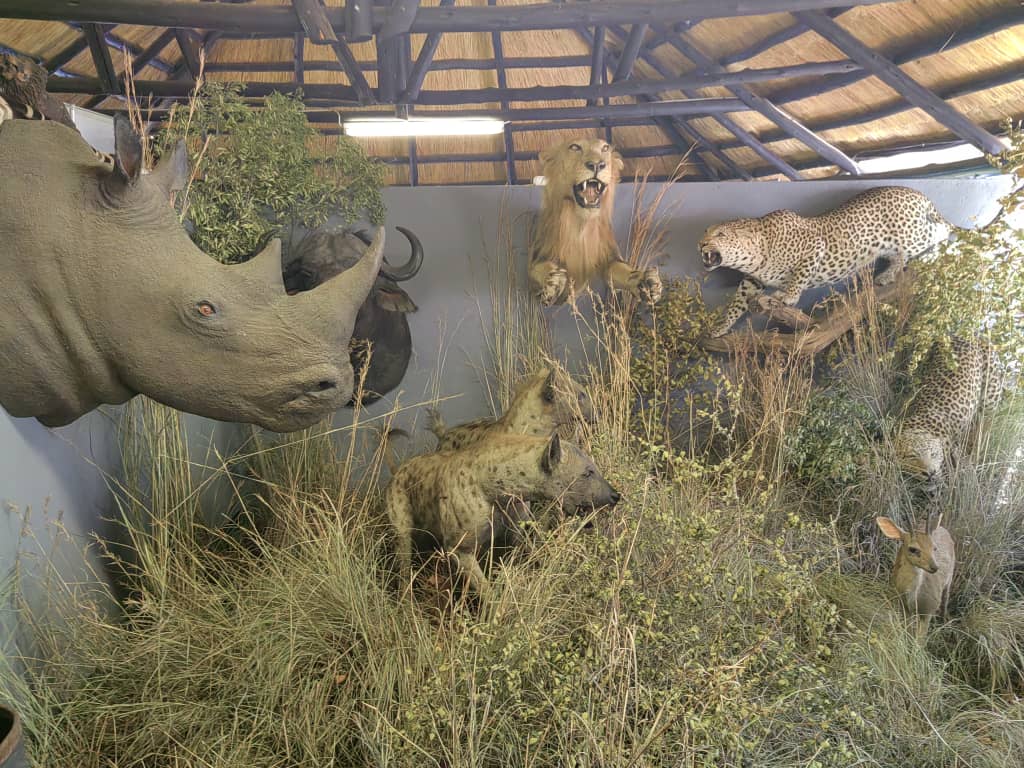Holistic approach required to deal with human-wildlife conflict challenge -VP Chiwenga
Share

Bulawayo (New Ziana)-There is need for a holistic approach to the challenge of the ballooning animal population in Zimbabwe, particularly elephants, as their numbers affect ecosystems, habitats, and communities adjacent to national parks, Vice President Constantino Chiwenga said on Thursday.
He was speaking during the Human-Wildlife Conflict Relief Fund Indaba
and the launch of the National Forest Policy held on the sidelines of the ongoing Zimbabwe International Trade Fair (ZITF).
VP Chiwenga said the event came at an opportune time, considering the centrality of the environment, climate, and wildlife sector to attaining the national vision of becoming an upper-middle-income society by 2030.
He said the country has not been spared from the scourge of human-wildlife conflict, particularly in areas adjacent to wildlife habitats.
“This challenge is increasingly threatening human life and people`s livelihoods. The consequences of human-wildlife conflict are more prevalent in areas where livestock and crop production are an integral part of people`s livelihoods and income,” he explained.
“In an endeavour to protect crops and livestock including the undertaking of other household daily chores, people are injured, maimed, or killed as a result of encounters with wild animals. Human, crops and livestock destruction does not only reduce incomes but also affects the people`s abilities to feed their families, thereby impacting on nutrition, health and education capacities of households.”
According to a survey that the Zimbabwe Parks and Wildlife Management Authority (ZPWMA) conducted recently, the population of elephants has surged from 84 000 in 2014 to over 100 000.
“If the wildlife population growth among animal species such as elephants, is left uncontrolled, it will lead to overgrazing, soil erosion and habitat degradation,” VP Chiwenga said.
He said since the country subscribes to the principle of sustainable utilisation, it has been using approaches such as hunting and management offtakes to reduce the numbers, but these approaches are, however, resisted and opposed for various reasons regionally and globally.
“It is disheartening to note, those who are opposing our conversation philosophy, have themselves failed to manage their wildlife populations, some to the point of extinction.
Zimbabwe, with this concept that they
oppose, has managed to grow its wildlife populations substantially,” he said.
The resistance, VP Chiwenga said, is further compounded by international policies under the auspices of the Convention on International Trade in Endangered Species (CITES) that constrain countries with excessive herds of elephants from disposing of them through culling, and selling of ivory.
“Maybe, it is time to propose that countries at the forefront of spearheading these retrogressive conservation policies, be afforded the opportunity to receive donations of at least 20 000 herd of elephants to have an appreciation of what we are alluding to.
“In this regard, I hope such countries will be forthright in accepting such generous donations, that invariably require vast tracts of land.”
VP Chiwenga said addressing the challenge of human-wildlife conflict
requires holistic as well as collaborative proactive and reactive approaches that prioritise environmental conservation, social justice, and sustainable development.
“In terms of social justice, the Second Republic, under the leadership of President Mnangagwa remains committed to ensuring relief for survivors and families of those killed by wild animals.
“As we engage regionally and internationally, Zimbabwe will continue to lobby for its position and philosophy in managing its wildlife populations.
“The upcoming International engagements such as the Convention on International Trade Endangered Species Twentieth of Parties (CoP20) next year 2025, should continue to provide a platform in which we defend our policies and ethos as we seek to mitigate effects of human-wildlife conflict, “said VP Chiwenga.
He said after noting the increase in cases of human-wildlife conflict, the Cabinet approved the establishment of the Human-Wildlife Conflict Relief Fund for victims of death, injury or maiming by wild animals.
The operationalisation of the fund will be preceded by the passage of the Parks and Wildlife Management Amendment Act, which will provide for its establishment.
New Ziana









